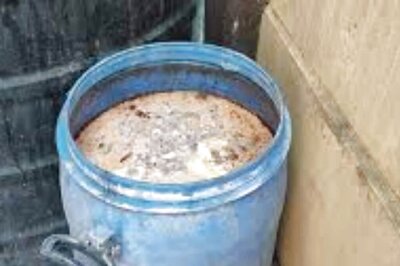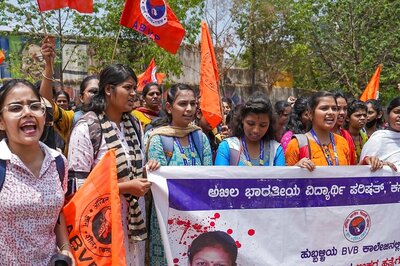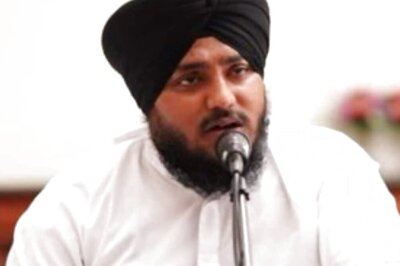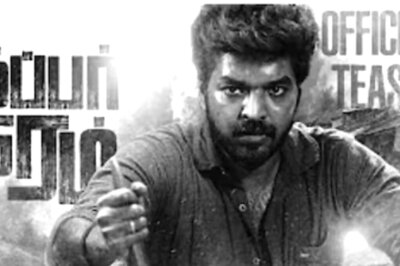
views
Baghdad: After losing more than 2,300 troops dead and spending over $250 billion in Iraq, the US and its allies have an awful lot invested in Thursday's Parliamentary election.
The vote will not just determine Iraq's first full-term government since the fall of Saddam Hussein in 2003, it will also act as significant way mark towards withdrawing US troops from a war that is increasingly unpopular with Americans.
Not surprisingly, Western diplomats and analysts have been setting benchmarks for what they think will constitute a successful poll - one which will give Iraqis hope and allow Americans to think realistically about bringing troops home.
"If you get 60 per cent voter turnout with pretty even voting across the country, with not too many violent incidents, that would be successful," said one Western official in Baghdad's Green Zone who, like others, asked not to be identified.
His target was more sober than some upbeat predictions of 80 per cent-plus turnout and minimal violence being bandied about in background briefings by some Western embassies in the past week.
Sixty per cent turnout among Iraq's 15 million eligible voters is hardly an ambitious target.
About 59 per cent of eligible voters cast ballots in January's election for an interim government, a poll largely boycotted by minority Sunni Arabs who were dominant under Saddam and who now spearhead a bloody insurgency.
PAGE_BREAK
Turnout rose to 64 per cent in October's constitutional referendum, which Sunnis narrowly failed to vote down.
Hussein al-Hindawi, chairman of the UN-backed Independent Electoral Commission of Iraq, said that he believed the turnout in Thursday's poll would top 70 per cent.
US President George W Bush is likely to need such numbers before he can tout the election as an unqualified success.
Bush has held up Najaf and Mosul as examples of progress in reconstruction efforts, but the plaudits ring hollow to foreign journalists who still cannot walk the streets of those cities without body armour and significant military protection.
Bush has made three speeches in an offensive to counter sliding public support for the war. Democratic Senator Robert Byrd said this month the conflict had already cost America $256 billion and asked how much more would be needed.
As for the human toll, almost 2,150 US troops have died since the invasion, as well as almost 200 from Britain and other allies. Tens of thousands of Iraqis have been killed.
Crucial barometer
Sunni Arab involvement in voting and in the next government will be another barometer for the US strategy of luring Sunnis away from the insurgency and into the political process.
Predictions of the turnout in Sunni strongholds like the western province of Anbar vary wildly. But many in the 20 per cent minority are expected to vote this time.
"The Sunni Arab community as a whole understands in a way that they did not understand in the last election that having strong representation in the national government is in their interests," said a Western diplomat in Baghdad.
Others said the proportional representation system meant Sunnis merely had to turn up in Anbar to be guaranteed seats.
Some diplomats said the Sunni Arab vote in mixed areas like Baghdad could decide the political fate of candidates such as former Prime Minister Iyad Allawi, seen as a potential compromise nominee to lead the next government if his secular list can win about 40 Assembly seats.
The threat of violence is ever-present in Iraq and major bloodshed on polling day would certainly dent the expectations of Washington and its allies. However, a security clampdown may keep insurgent attacks to an acceptable minimum.
After the election, protracted political bargaining may be needed before a new government emerges with a four-year mandate.
Its challenge will be to guide Iraq away from the dangers of civil war and rule more effectively than Prime Minister Ibrahim al-Jaafari's administration, viewed as feeble by many Iraqis.




















Comments
0 comment